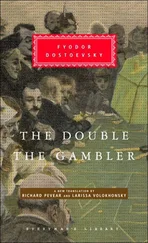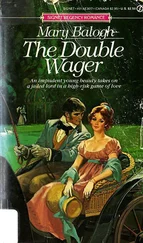“Thank you,” she said.
“I don’t know all the details about this gentleman-your Mr. Crocker-but it appears to me as if your group really was his saving grace.”
“We found him a home. It’s what we do.”
“You’re modest. Trust me: The work you do is infinitely more important than the work I do.”
“That’s nice of you to say.”
“I mean it,” said Leckbruge, and Laurel had the distinct sense that he did. “I was wondering if we might have coffee together while I’m in Vermont. You could come to our place out here in Underhill. It’s not flashy, but it’s nice. Used to be, of all things, a giant sugarhouse. Woodsy on three sides, but I have a stellar view of Mount Mansfield to the east. The dirt road will beat the dickens out of your car during mud season. But it’s fine the rest of the year. I am presuming you have a car. True?”
“I do,” she said. “But I’m not coming to Underhill.”
She spoke with such unmistakable finality that for a moment he was silent. Eventually, Leckbruge said, “Well, then. Should I read anything particular into your…firmness?”
“Nothing I care to discuss.” An image: the fingernails on the thinner of her two assailants. He had just wrapped his hands underneath the handlebars of her mountain bike as he lifted it-lifted her-off the dirt road, so the nails were facing the sky. There were black lines of grime beneath the tips. Her stomach already was queasy from the way she had been lurched up and into the air, as she heard once again that appallingly stupid joke. Liqueur Snatch. Meanwhile, the one who would prove to be the real bodybuilder was calling her a cunt, roaring the word at her through the mouth hole of his wool mask.
“Very well, very well,” Leckbruge was saying. “Shall we meet in Burlington? Would that be possible?”
“What do you want to talk about?”
“The photographs that were in the possession of your late client. But I’ll bet you knew that.”
“I have nothing to say. I’m sorry. And even if I did, my sense is I should only be talking to Chris Fricke-as should you.”
“ Burlington has a lot of eccentric little coffee bars. I love them all, especially one near that theater. The Flynn. Has a hot chocolate that’s downright indecent. And I also know of a gloriously idiosyncratic wine bar. How ’bout we meet at five o’clock? Your choice: coffee or wine.”
She thought she heard stirring behind Talia’s closed door. Suddenly, she had a vague notion that she and her roommate had some outstanding business together-a nagging sense that the two of them were supposed to do something that very day. Perhaps something as simple as shopping. But Laurel didn’t believe that was it.
As much as she enjoyed Talia-as much as she loved Talia; the woman had been more of a big sister to her than her real sibling for years now-she realized that she had to be gone by the time her friend emerged from her bedroom. She needed to get to the darkroom. She had to get to the darkroom. Which meant that she couldn’t possibly linger over this phone call. And so, much to her own surprise, she agreed to meet Leckbruge at a wine bar in Burlington at five, if only so she could get off the phone and out of the house. Then, without showering or changing her clothes or even grabbing a piece of fruit for breakfast, she silently raced down the stairs and out the old Victorian’s front door.
WHERE ONCE HAD SAT the ash heaps and the billboard of Dr. T. J. Eckleburg-the optometrist whose looming, roadside ad had eyes that were massive, vacant, godlike, and cold-there was now a corporate business park. The buildings were all four and five stories, antiseptic blocks of tinted glass surrounded by parking lots that were dotted with islands of small, stunted trees. There was one fountain, an uninteresting spigot that fanned water into an umbrella near the building that housed a cell phone company. Laurel recognized the complex instantly from the photographs Bobbie had taken, because she had seen it from the highway. That meant that somewhere in the ground beneath one of the buildings was some small remnant of George Wilson’s gas station. A tiny shard of glass, maybe. A trace of the cement that once had supported the gas pump. In addition, there was probably a relic or scrap from the coffee shop managed that awful, steaming summer of 1922 by a young Greek named Michaelis-the principal witness at the inquest that followed Myrtle Wilson’s death.
Had Laurel not known Bobbie’s real identity, she might have puzzled over why the photographer had bothered to snap pictures of an office park on Long Island. It was profoundly far afield from the musicians and actors and news stories that seemed to be his primary subject matter. She might have thought it was possible that toward the end of his career he had been reduced to shooting office parks for real estate ads-and, based on the age of some of the vehicles in the lot, she guessed these were taken in the late 1970s-but she knew just enough area history to understand what he was actually doing. He was chronicling the location where his mother had accidentally run over her husband’s lover and then fled the scene.
She paused for a moment, staring at the images of the office park as they bathed in the chemical trays. How hard must it have been for him when he learned the truth about his parents? How old was he? Certainly, everyone discovers things about their mothers and fathers that make them a little uncomfortable, that leave them a little wobbly. Laurel had read enough psychology to know the importance of accepting one’s parents’ inadequacies, and how we use them unconsciously as a part of our adolescent separation from them. Individuation. Growth. It was, alas, a part of growing up. But it was one thing-in her case, for example-to realize that her otherwise hardworking, disciplined, profoundly giving father gorged on occasion like a Roman emperor. It was quite another to learn that both of your parents were adulterers, and your mother had slammed into a woman while driving her lover’s car and left the victim to bleed to death on the side of the road.
She wondered: Was it when Bobbie learned of his parents’ reprehensible cowardice and selfishness-Daisy driving on as Myrtle died, and then Tom telling George Wilson who owned the yellow car so Gatsby would absorb the despairing man’s wrath-that he changed his last name?
She didn’t know a lot about schizophrenia, but she knew a bit from her master’s in social work and from her years at BEDS. You couldn’t work with the homeless and not pick up something. She found it revealing that Bobbie was sixteen when he ran away from home, since schizophrenia often begins to manifest itself between adolescence and young adulthood, and on occasion there is one traumatic, precipitating event. A term came to her that they used on occasion at BEDS: the double bind. The expression had a clinical origin, referring to Gregory Bateson’s theory that a particular brand of bad parenting could inadvertently spawn schizophrenia. Essentially, it meant consistently offering a child a series of contradictory messages: telling him you loved him while turning away in disgust. Telling him he needed to go to sleep when it was clear you merely wanted him out of your hair. Asking him to kiss you good night and then telling him he has offensively bad breath. Over a long period of time, Bateson hypothesized, a child would realize that he couldn’t possibly win in the real world, and as a coping mechanism would develop an unreal world of his own. The double-bind theory had not been completely discredited, but Laurel knew these days that most clinicians viewed nature-brain chemicals-as a much more significant determinant than nurture in whether a person became schizophrenic. Nevertheless, at the shelter they used the expression in much the same way that they would a term like catch-22.
Читать дальше












